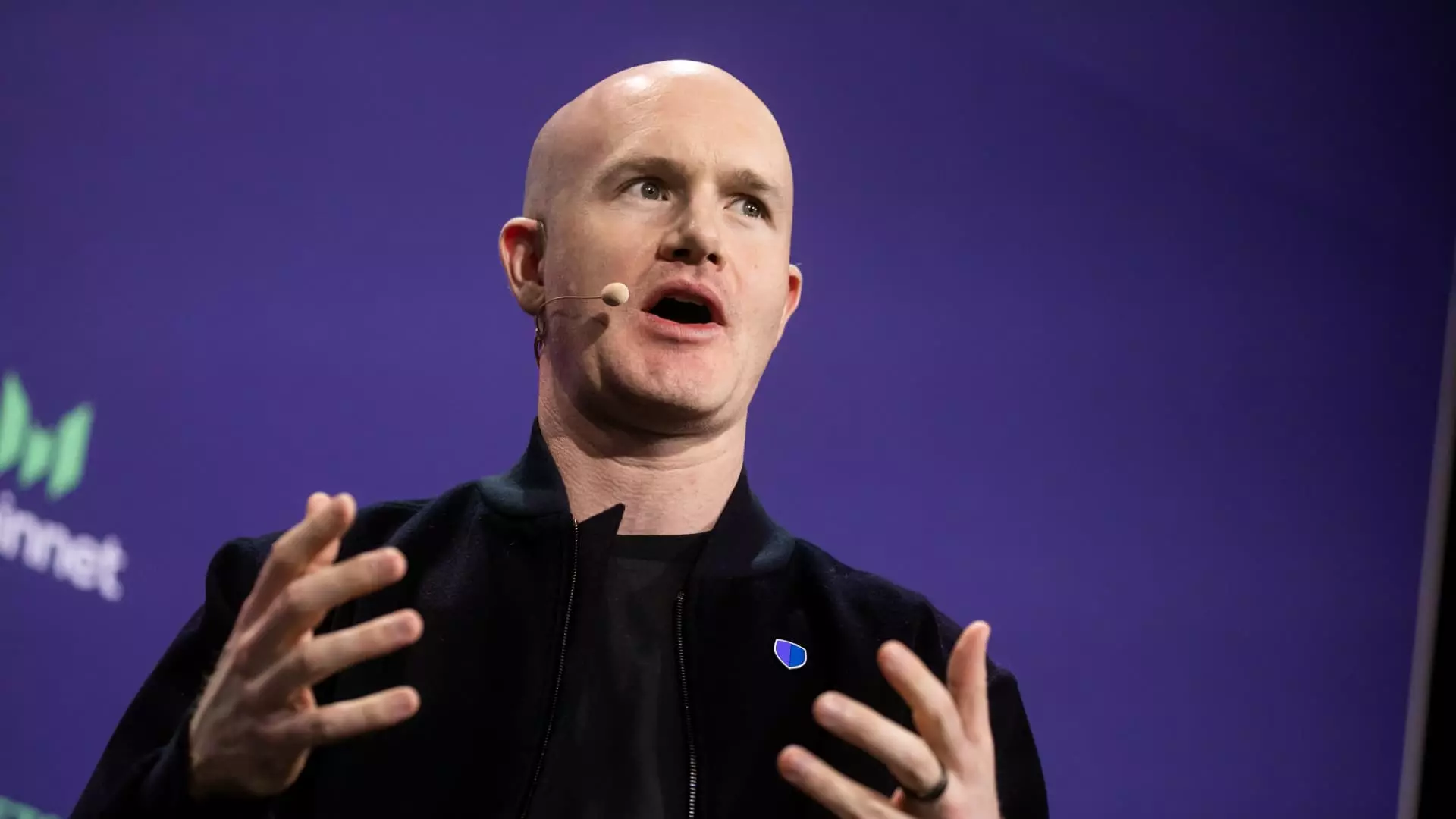The recent surge in Coinbase shares, jumping over 20% following its announcement of inclusion in the S&P 500, evokes mixed feelings about the future of cryptocurrency in the United States. This is no ordinary market movement; it echoes the sentiments of excitement and volatility that have characterized the financial landscape since the days of President Donald Trump’s initial election victory. The driving force behind this rally appears linked to S&P Global’s decision to replace Discover Financial Services, which is being acquired by Capital One Financial, with Coinbase. The broad market response suggests that institutional investors see some level of promise in this volatile asset.
The apparent financial endorsement from the establishment sends a clear message to the market: crypto is not just a passing fad but is being recognized by mainstream finance. However, it raises a fundamental question: Is this an authentic endorsement of the cryptocurrency sector or merely a response to the ever-changing political landscape that has left many uncertain about the future?
A Symbiotic Relationship with Politics
As Coinbase celebrates its latest victory in the market, it’s crucial to analyze what’s at stake politically. The company’s CEO, Brian Armstrong, and Coinbase have been among the most palpable financial supporters of pro-crypto candidates, pouring significant resources into the 2024 campaign. Their near $75 million contributions show they are betting on a favorable regulatory environment under a new Trump administration. The strong financial ties between cryptocurrency and political clout complicate the narrative. If political winds favor crypto today, what does that mean for the sector’s stability?
The reality is that while many applaud the potential of a Trump administration for ushering in a more crypto-friendly regulatory environment, skepticism lingers, particularly relating to Trump’s personal interest in meme coins and crypto investments. It’s this intertwining of finance and politics that leaves investors walking a tightrope: we yearn for freedom and innovation, yet are consciously aware of the bureaucratic chains that could be instigated with fickle political changes.
Wild Ride of Volatility
Coinbase’s fluctuating share prices encapsulate the essence of the cryptocurrency market: wild, unpredictable, and often bewildering. Having plummeted by 26% in February and 20% in March—thanks to Trump’s tariff announcements—one wonders how long this current rally will last. The sharp dips showcase vulnerabilities tethered to wider macroeconomic factors, reminiscent of trades reflecting investor hesitance. But does this wavering reflect an inherent problem within Coinbase or the crypto market at large?
Coinbase’s recent earnings report reveals a downward shift in net income, which begs the question—can the company sustain investor interest amidst glaring profitability concerns? The reported net income fell to $65.6 million from over a billion a year prior, indicating a shrinking comfort level for investors. However, revenue growth at 24% year-over-year suggests that demand for cryptocurrencies is not dead; it’s simply transforming.
Future Prospects and Institutional Confidence
The ongoing developments, including plans to acquire Dubai-based Deribit for $2.9 billion, suggest that Coinbase is not merely resting on its laurels; rather, it is actively positioning itself for a global footprint. This acquisition is poised to allow Coinbase to bypass restrictive U.S. regulations by establishing a larger presence in a more crypto-friendly jurisdiction. The impact this has on long-term investor confidence cannot be understated.
Institutions are beginning to move toward embedding cryptocurrencies into their portfolios. Bitcoin’s price surge—topping $104,000 recently—reinforces this pattern. With institutional investment following an upward trajectory, one can contort the narrative to suggest a long-standing resilience, despite the ebb and flow of individual company performance.
Thus, as Coinbase rides the tides of this latest rally, the bigger picture remains murky. Is this a turning point that could herald a new age for crypto or simply a bubble discarding resistance to market whims? The answer will likely unfold further as political climates shift and economic conditions change, but it’s clear: Coinbase is on the frontline, navigating an intricate dance that intertwines finance, influence, and the future of cryptocurrency.

